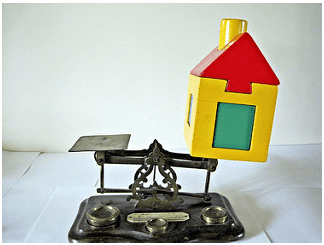The Reserve Bank of New Zealand recently dropped the official cash rate (OCR) to 3.25%. A move that has property investors, exporters, and first home buyers, delighted. The move has seen many major banks drop their floating mortgage rates, and ultimately that means sizeable savings on home loan interest.
With interest rates dropping and the discussion intensifying around residential rental property investment, particularly in Auckland, we are frequently being asked for advice by prospective residential rental property purchasers.
Buying rental property as an investment is not as straightforward as you might think. This blog is intended to provide a brief introduction to some of the aspects of property purchase you will need to consider.
What you need to know before purchasing property
It is important that appropriate structures and processes are put in place from the outset. You will need good accounting advice as there will be taxation and other issues including recovery of costs that you will need to be familiar with. You will need to take advice on the appropriate purchase vehicle whether it should be in your own name, through what is known as a look through company or a trust. And you’ll need a basic understanding of real estate law to ensure you don’t miss out on purchasing your dream property. The answer will depend on your circumstances and differ from purchaser to purchaser.
You will need to decide whether you are looking for rental return or capital gain when choosing which locality to purchase in. The rate of rental return is often higher in lower priced suburbs whereas in higher-priced areas although the rental return may not be as good the capital growth prospects may be higher. It is a relatively simple exercise to look at the online rental sites to see what properties are renting for on a suburb by suburb like for like basis. Looking at the sale prices for similar properties will give you the raw information to carry out the exercise.
You will need to factor in all of the incidental costs that go with buying property and property ownership; including rates, insurance, body corporate levies if applicable, property maintenance, accounting fees, and ancillary compliance fees if you are purchasing through a trust or a company (for example annual return fees).
Maintenance is always an issue and potentially significant cost. You will need to factor in deferred maintenance and the extent to which it will require possession of the property in your purchase decision. Who is going to mow the lawns? Who is going to pay for it? You may wish to organise maintenance contracts. For apartment buildings exterior maintenance is undertaken by the body corporate but the cost is included in levies.
First-Time Landlords – Buying a Rental Property
You will need to consider carefully how much you can afford to pay. That will depend in large part on your budget and the amount of finance you can raise, and for first home buyers it isn’t always as easy as it is for those of you with an existing property asset. The temptation is to gear purchases heavily so that the cost of borrowing can be offset against rental income. The real danger here is that if property values drop you can end up with negative equity.
When prices dropped several years ago there were numerous mortgagee sales of rental investment properties. You also need to cover the contingency that tenant may not pay the rent on time, or that the property may remain empty for periods of time between tenancies. The mortgage payments will continue as will rates and insurance.
You will need to decide whether you wish to manage the property yourself or whether you wish to engage a property manager as many rental property landlords do. Although they will charge you commission they look after everything from finding tenants, property inspections, maintenance and tenancy tribunal hearings. Some landlords much prefer not having to deal face-to-face with tenants.
Real Estate Law and your rental property
All the usual precautions and the need for good legal advice on property purchases are also applicable to a rental property purchase. In addition you will need to familiarise yourself with your bond obligations and the legal obligations imposed on you as a landlord by The Residential Tenancies Act 1986.
There is helpful information including a landlord pack online at the Tenancy Services website. You will need to be familiar with the limitations that there are on your ability to terminate a tenancy and understand the differences between fixed term tenancies and tenancy terminable on notice. If you are not going to use a property manager then you will need to find tenants yourself and to prepare tenancy agreements.
Purchasing and selling property that is already tenanted
Occasionally properties are available with sitting tenants, so you’ll need to be extra careful during the purchase process. More often vendors prefer the greater market opportunities that vacant possession offers particularly as it extends class of prospective purchasers to owner occupiers. The time constraints on giving notice to a sitting tenant limit the attractiveness of properties to owner occupiers as it usually means a long deferred settlement date. If you wish to purchase such a property the best course would be through a property manager who could canvas existing landlord clients.
Conveyancing experts can handle your rental property purchase
As you can see there is a lot more to a residential rental property purchase then you might first think. Before embarking on the exercise you should do your research; work out your budget and funding ability then discuss it with one of our property lawyers and also have discussions with your accountant and your proposed property manager. No matter which part of the process you’re in, the conveyancing experts at Home Legal will be able to help, so get in touch!
Further reading
- Guide to property investing https://www.sorted.org.nz/a-z-guides/property-investing
- Advtanges to buying your own home http://www.nzherald.co.nz/personal-finance/news/article.cfm?c_id=12&objectid=11471856
- Buying a house, apartment or rental property https://www.govt.nz/browse/housing-and-property/buying-or-selling-a-home/real-estate-buying-a-house-apartment-or-a-rental-property/





